
The prime minister of Israel is the head of government and chief executive of the State of Israel.

Yitzhak Rabin was an Israeli politician, statesman and general. He was the fifth prime minister of Israel, serving two terms in office, 1974–1977, and from 1992 until his assassination in 1995.

Golda Meir was an Israeli politician who served as the fourth prime minister of Israel from 1969 to 1974. She was Israel's first and only female head of government and the first in the Middle East.

Levi Eshkol, born Levi Yitzhak Shkolnik, was an Israeli statesman who served as the third Prime Minister of Israel from 1963 until his death from a heart attack in 1969. A founder of the Israeli Labor Party, he served in numerous senior roles, including Minister of Defense (1963–1967) and Minister of Finance (1952–1963).
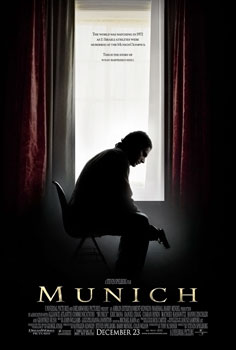
Munich is a 2005 epic historical drama film produced and directed by Steven Spielberg, co-written by Tony Kushner and Eric Roth. It is based on the 1984 book Vengeance by George Jonas, an account of Mossad assassinations following the Munich massacre.
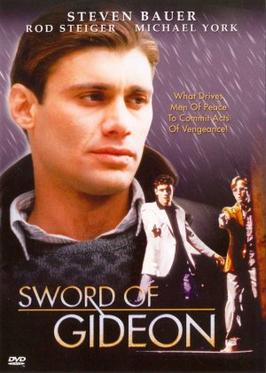
Sword of Gideon is a 1986 Canadian television film about Mossad agents hunting down terrorists associated with the 1972 Munich massacre. It was first shown on the CTV Television Network in Canada as a four-hour miniseries and later on HBO in the United States. Directed by Michael Anderson and written by Chris Bryant, the film stars Steven Bauer and Michael York. The film is based on the book Vengeance by George Jonas, an account of the incident which has been criticized by some intelligence personnel as fictional, though because of its covert nature is difficult to prove or disprove. In some countries the book was titled Vengeance: Sword of Gideon, from which the movie title is drawn. The story was retold in the 2005 film Munich by Steven Spielberg.

A Woman Called Golda is a 1982 American made-for-television film biopic of Israeli Prime Minister Golda Meir directed by Alan Gibson and starring Ingrid Bergman in what would become the final production she would star in before her death. It also features Ned Beatty, Franklin Cover, Judy Davis, Anne Jackson, Robert Loggia, Leonard Nimoy, and Jack Thompson.
Since the founding of the State of Israel, relatively few women have served in the Israeli government, and fewer still have served in the leading ministerial offices. While Israel is one of a small number of countries where a woman—Golda Meir—has served as Prime Minister, it is behind most Western countries in the representation of women in both the parliament and government.
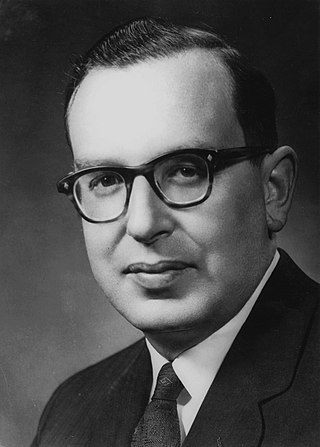
Yaakov Herzog was an Irish-born Israeli diplomat.
Yehuda Avner was an Israeli prime ministerial advisor, diplomat, and author. He served as Speechwriter and Secretary to Israeli Prime Ministers Golda Meir and Levi Eshkol, and as Advisor to Israeli Prime Ministers Yitzhak Rabin, Menachem Begin, and Shimon Peres. Avner served in diplomatic positions at the Israeli Consulate in New York, and the Israeli Embassy to the US in Washington, D.C., and as Israel's Ambassador to Britain, Ireland and Australia. In 2010, he turned his insider stories about Israeli politics and diplomacy into a bestselling book, The Prime Ministers, which subsequently became the basis for a two-part documentary movie. In 2015, his novel, The Ambassador, which Avner co-authored with thriller writer Matt Rees, was posthumously published.

The thirteenth government of Israel was formed by Levi Eshkol on 12 January 1966, following the November 1965 elections. His coalition included the Alignment, the National Religious Party, Mapam, the Independent Liberals, Poalei Agudat Yisrael, Progress and Development and Cooperation and Brotherhood, and had eighteen ministers.

The fourteenth government of Israel was formed by Golda Meir on 17 March 1969, following the death of Prime Minister Levi Eshkol on 26 February. She kept the same national unity government coalition, including the newly formed Alignment alliance of the Labor Party and Mapam, as well as Gahal, the National Religious Party, the Independent Liberals, Poalei Agudat Yisrael, Progress and Development, Cooperation and Brotherhood. The only change to the cabinet was the scrapping of the Minister of Information post, with the previous post-holder Yisrael Galili becoming a Minister without Portfolio instead.
Events in the year 1969 in Israel.
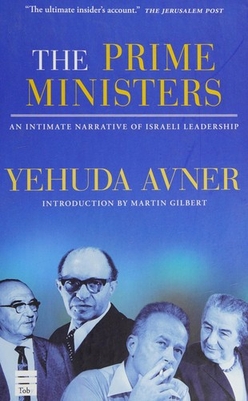
The Prime Ministers: An Intimate Narrative of Israeli Leadership is a 2010 book written by Yehuda Avner and published by Toby Press. It documented events related to 4 Israeli prime ministers—Levi Eshkol, Golda Meir, Yitzhak Rabin and Menachem Begin. It was first published in Israel on 15 March 2010 and a wider publication was done on 1 September 2010. The book was well received by critics and was one of the finalists for the 2010 National Jewish Book Awards. In 2013, Moriah Films, the film division of the Simon Wiesenthal Center produced a two-part documentary based on the book that features Avner as the narrator, and Hollywood actors as the voices of Israel's prime ministers.

Michael Arnon was an Israeli diplomat and civil servant. In the years 1968-1974 he served as Cabinet Secretary under prime ministers Levi Eshkol and Golda Meir.

The spouse of the prime minister of Israel refers to the wife or husband of the head of government of Israel. It is not an official position or title.
Moriah Films is the Jack and Pearl Resnick Film Division of the Simon Wiesenthal Center.
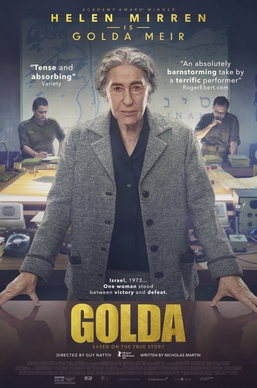
Golda is a 2023 biographical drama film directed by Guy Nattiv and written by Nicholas Martin. The film depicts the actions of Golda Meir, the 4th Prime Minister of Israel, during the Yom Kippur War. It stars Helen Mirren, Camille Cottin and Liev Schreiber.
The 1969 Israeli Labor Party leadership election was held on 7 March 1969. Held in the aftermath of the death in office of party leader and prime minister Levi Eshkol, it saw the party's Central Committee elect Golda Meir as the party's new leader.

Lou Kaddar was an Israeli political staffer, diplomat, interpreter, and social worker. From 1948 to 1978, she served as Golda Meir's private secretary and confidante. Kaddar worked for Meir when she was Minister of Labor, Minister of Foreign Affairs, and Prime Minister of Israel.














